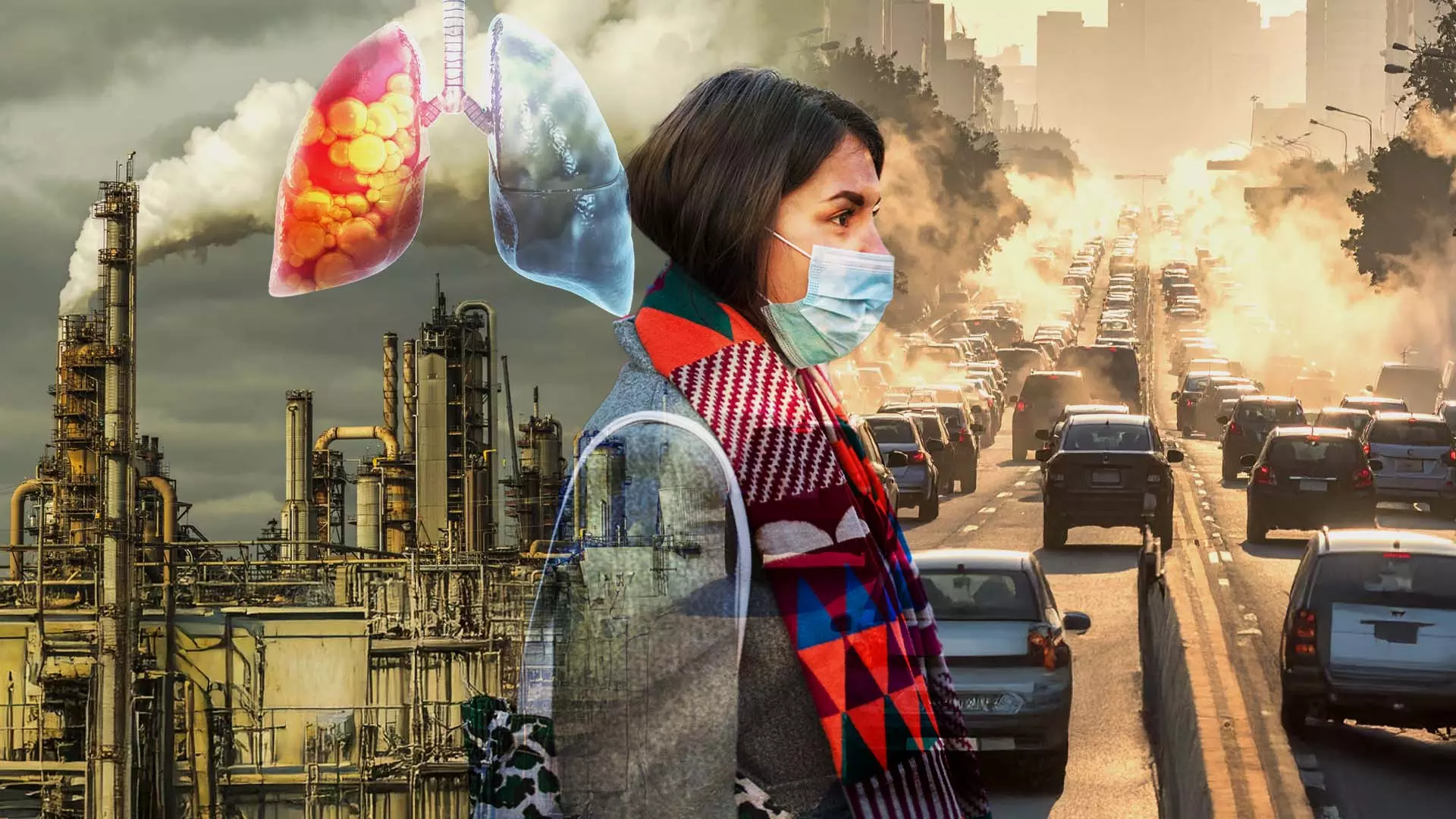
Not a smoker? Air pollution is as lethal as a cigarette, say doctors
Experts say rising levels of fine particulate matter are damaging lungs, increasing asthma, and leading to early-onset lung cancer among urban populations

Smoking kills, but so does the air you breathe. India’s worsening air pollution crisis is now triggering cancer among non-smokers. Medical experts say rising levels of fine particulate matter (PM 2.5) are damaging lungs, increasing asthma, and even leading to early-onset lung cancer among urban populations.
A BMJ study found that air pollution from fossil fuels, industries, and vehicles causes 5.1 million deaths globally every year. In India, pollution-related illnesses are now a national health emergency from Delhi to Mumbai and Chennai; no city is safe.
Also read: Why cloud-seeding trial to produce rain in Delhi was bound to fail
According to a Lancet (2020) study, air pollution accounted for 17 per cent of all deaths in India in 2019. Experts estimate that over 2 million premature deaths occur annually due to polluted air.
Health impact grows
Air pollution is now causing diseases once only linked to smoking COPD, bronchitis, asthma, and lung cancer. Non-smokers in highly polluted cities face lung cancer risks similar to smokers.
“Fine particulate matter less than 2.5 microns enters deep into the lungs, causing chronic inflammation,” explained a pulmonologist. “Over time, this damages DNA, leading to uncontrolled cell division and cancer.”
Doctors say the problem doesn’t stop at the lungs. Polluted air also contributes to heart attacks, strokes, skin allergies, and low birth weight in infants. In polluted cities, even a simple cold can take two to three weeks to heal compared to just five to seven days in cleaner areas.
Growing cancer crisis
Studies show a steady increase in lung cancer cases from 6.6 per lakh in 1990 to 7.7 per lakh in 2019, with projections of a further rise by 2025, especially in urban centers.
“You will not believe we have treated cases of lung cancer in the age group of 14 to 18 years,” said one doctor. “Nearly 40–50 per cent of lung cancer patients in India are non-smokers, largely due to air pollution exposure.”
Watch: Delhi in ICU, green crackers just a greenwash: Environmentalist Vimlendu Jha
According to the Indian Council of Medical Research (ICMR), risk factors include fine particulate matter, second-hand smoking, and indoor air pollution from cooking fuels. Occupational exposure to asbestos, arsenic, and chromium further heightens the danger.
Economic burden on families
The impact isn’t only medical, it’s financial. Pollution-linked illnesses cost India an estimated ₹1.36 lakh crore annually in healthcare expenses. Families spend between ₹5,000 and ₹1 lakh on air purifiers, humidifiers, and medications, with urban healthcare costs rising by 15 per cent every year.
“Repeated hospitalisations can drain a family’s income,” said a pulmonologist. “Severe COPD patients may need oxygen concentrators or non-invasive ventilators like BiPAP at home.”
What is the solution?
Experts say individuals can reduce personal risk through small lifestyle changes.
“Stop creating indoor pollution, avoid burning incense sticks, candles, or mosquito coils,” advise doctors. “By cutting indoor pollutants, you can reduce suffering by nearly 50 per cent.”
They also stress the importance of regular lung check-ups, monitoring Air Quality Index (AQI) levels, and pushing for cleaner public policies. Masks, purifiers, and awareness campaigns can only go so far; lasting change needs strong environmental action.
Also read: Top 10 Indian cities with cleanest air: Aizawl tops, 2 TN cities in list
Air pollution isn’t just an environmental issue; it’s a public health and economic crisis. As India urbanises, its toxic air could cost millions more lives unless urgent steps are taken.
The content above has been transcribed from video using a fine-tuned AI model. To ensure accuracy, quality, and editorial integrity, we employ a Human-In-The-Loop (HITL) process. While AI assists in creating the initial draft, our experienced editorial team carefully reviews, edits, and refines the content before publication. At The Federal, we combine the efficiency of AI with the expertise of human editors to deliver reliable and insightful journalism.

